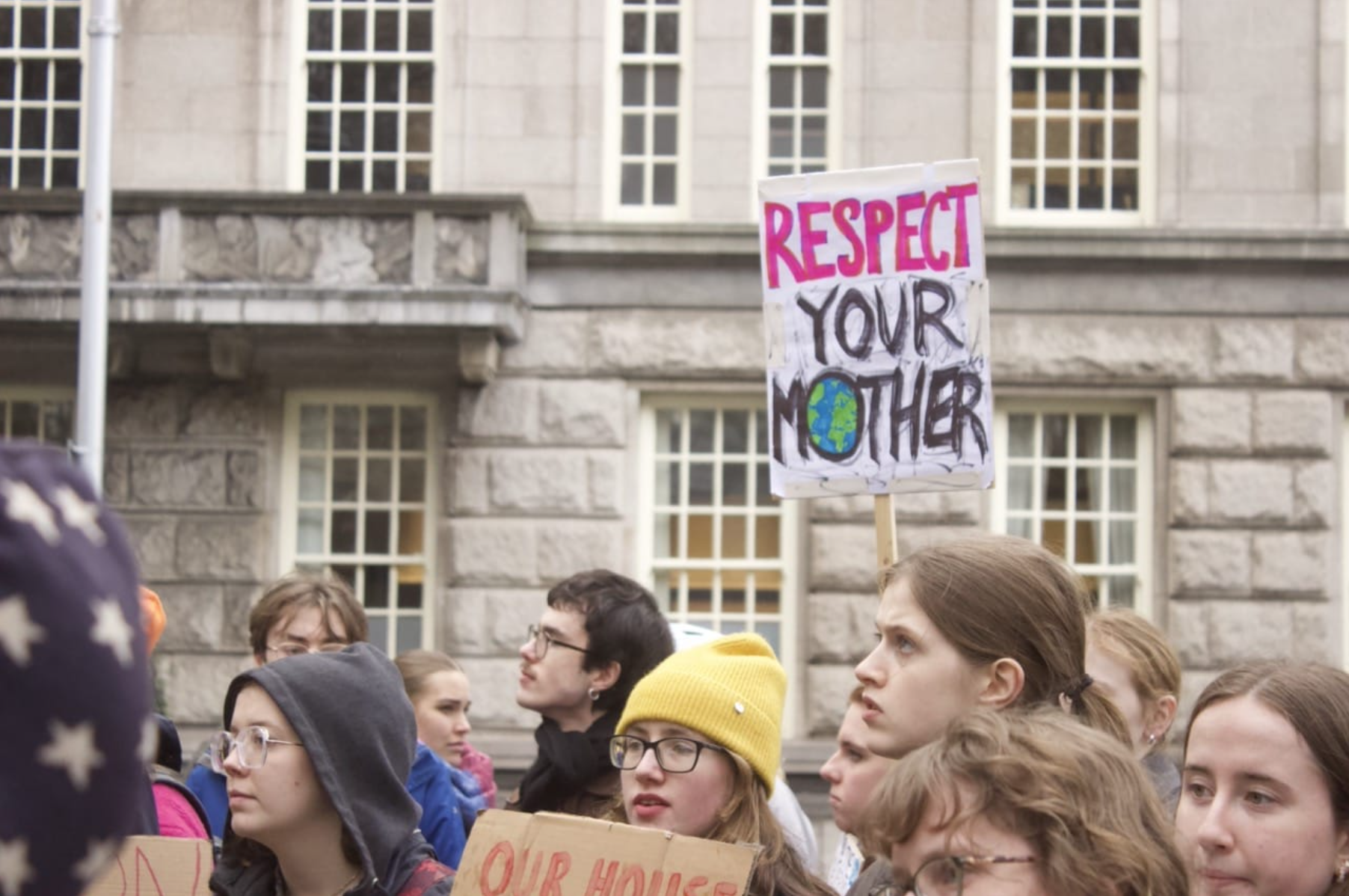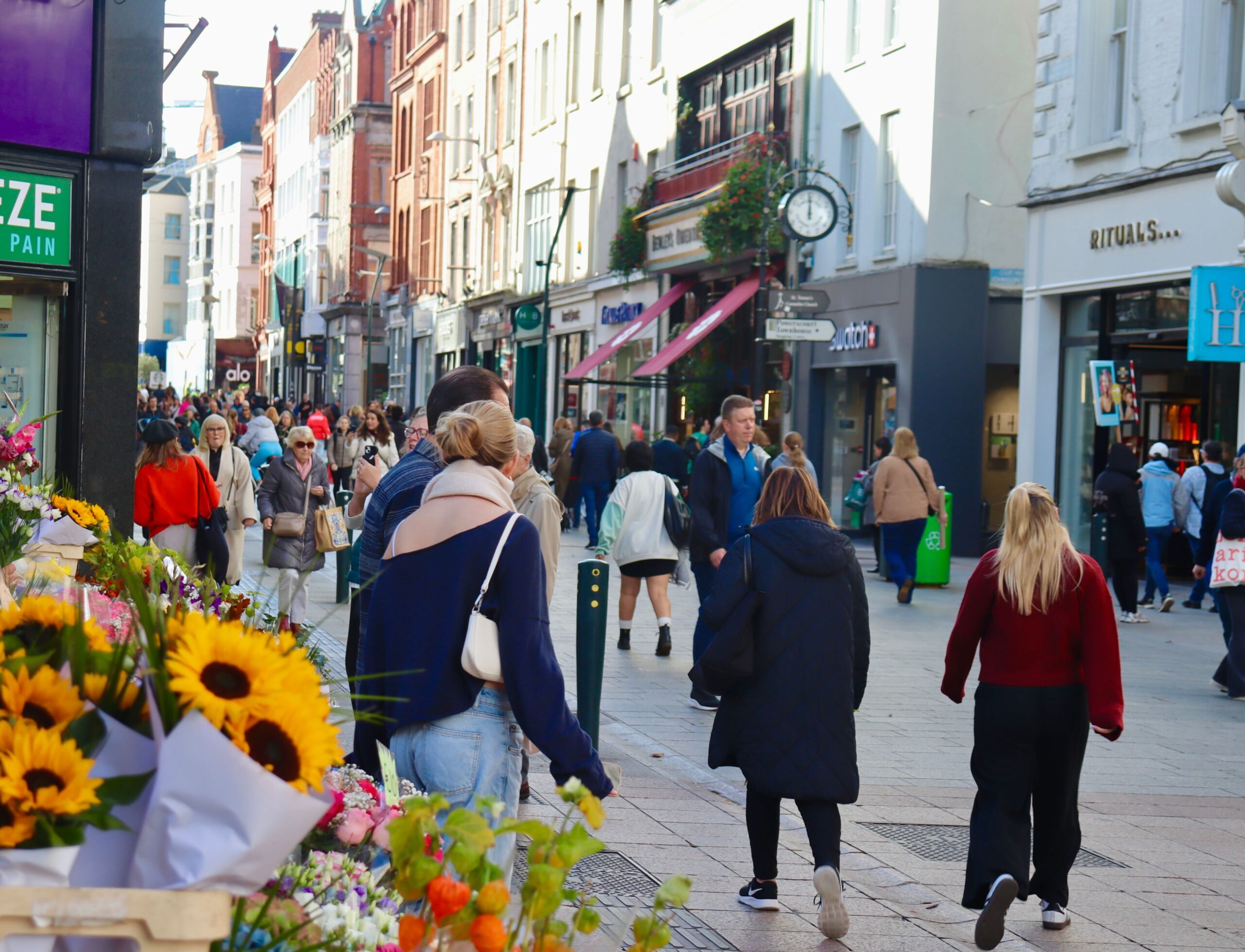James Bennett | Magazine Editor
“It was something that I had been thinking about for about half a year. It arose after the second regressive budget. Two budgets in a row had made Ireland a more unequal society. Whatever about the context we were in, I felt that this was no way that the Labour Party should be going.”
Twenty six councillors have left the Labour Party since it entered into government with Fine Gael
These are the words of Cian O’Callaghan, a councillor and former mayor of Fingal, who left the Labour Party in July this year. Twenty six councillors have left the Labour Party since it entered into government with Fine Gael. This is almost ten per cent of all Labour councillors. The party has also lost five TDs, one senator, and one MEP. O’Callaghan puts this down to two principal factors: the party’s role in government, and its increasingly authoritarian style of dealing with its own members. He believes that the Labour Party as an organisation has become more undemocratic in recent years:
“There is no internal culture of democracy. Any attempt by anyone to dissent is trampled on… The internal culture of the party in its most recent period has been the most authoritarian and stifling that I have ever seen.”
When I asked if this allegedly undemocratic culture in Labour is reflected in structural changes to the party , or if it is simply manifest in the way the party deals with members in a day to day basis, O’Callaghan says that both aspects are important. In terms of structural moves away from democracy, he cites the new party constitution brought in by Eamon Gilmore in 2009:
“One of the first things that Gilmore did as party leader was to introduce a new constitution for the Labour Party. And in that, he centralised power. He got rid of the national executive as it was. We used to have around twenty or thirty representatives on it.
He got rid of the national executive as it was
It was a broad group of people with representatives of groups such as Labour Youth, Labour Women, Trade Unions. That was abolished and replaced with a six-person executive of three men and three women elected at the party conference. So it’s almost impossible to get elected onto that.”
a lot of the members feel like they don’t have a choice but to go along with it
I pointed out to O’Callaghan that this constitution was voted in by Labour members at the party conference, asking if they really had the right to complain when they did have the option not to adopt it: “Yes it was voted on at the party conference. But when the party leader goes to a conference with constitutional reforms, and the leader is new and popular, a lot of the members feel like they don’t have a choice but to go along with it because they don’t want to embarrass their leader by voting against his reforms.”
The more tacit move towards an authoritarian culture, the subtleties of everyday relations between the party and its members, seems to interest him more. He feels that Labour, which is usually considered to be the most democratic of the mainstream Irish political parties, has stopped valuing its core members. He cites various pieces of anecdotal evidence to back up this accusation:
“Labour is traditionally quite a democratic and open party. It was always tolerant of a broad range of views: from the radical left, right through to the political centre. It always worked on the basis that it was a coalition of multiple different strata of the left… However, the last conference I was at was in Galway a year and a half ago, and it was the worst party conference I have ever been to.
Party members [were] ejected from the conference
There were Labour Party members ejected from the conference by the security firm that had been brought in. One of them didn’t have the proper documentation, and even though he had campaigned for the party for years, he was thrown out. There was somebody else who was seen talking to a protester outside the conference and security threw him out.”
Gilmore has not taken to leadership well
O’Callaghan is also very critical of Eamon Gilmores personal style of leadership. Although he says he has known Gilmore for a long time, and “would have a lot of time for him”, he feels that Gilmore has not taken to leadership well. He recalls members being chastised by party officials for not having their photo taken with Gilmore after events: “They got given out to afterwards for not being in the photo with him. They were threatened with having running mates added on in elections. I mean, who cares about a photo? It’s absolutely ridiculous what’s going on.”
He also cites an incident at a meeting for grassroots Labour Party members in Malahide: “[Eamon Gilmore] was taking questions from the floor and when he was getting difficult questions he was shouting back at those who were asking them. He was being quite nasty and unpleasant, which then stopped anyone else asking questions, and stopped a proper debate from happening.”
“25 critical and dissenting motions have been excluded from this year’s Labour Party Conference”
The motif of stifled debate is one that occurs repeatedly in Cian O’Callaghan’s speech. He draws attention to the fact that approximately “25 critical and dissenting motions have been excluded from this year’s Labour Party Conference” as reported in The Phoenix last month.
These motions mostly came from local Labour branches, and called for a review of the party’s role in government. One of these motions, from the Dublin Bay North branch of the Labour Party, can be seen at the end of this article. O Callaghan feels that the rejection of these motions from the conference agenda shows that Labour is not comfortable with its own actions in government:
“Shutting down debate is dangerous. Debate allows problems to be addressed. When you shut that down, people can’t raise problems and things get worse. The situation seems to be deteriorating quite fast. Ten per cent of the councillors have left. That’s why you see people leaving who have been party members for up to thirty years, who would have never thought of leaving.
what’s going on is totally wrong
They feel in their absolute gut, even though their politics would be quite moderate, that what’s going on is totally wrong. You have a situation where people who are wealthy are being protected, and the most vulnerable are being attacked. That’s why political dissent is being stifled – because the people who are making these decisions can’t possibly defend them…”
O’Callaghan mentions efforts that were made to reinvigorate debate within the party. Two internal movements were set up: the Labour Members’ Forum, and the Campaign for Labour Policies. He believes that these groups made a good effort to instigate change, but to no avail:
I felt that internal Labour Party democracy had been reduced to a farce
“The Labour Member’s Forum and Campaign for Labour Policies in my view served a useful role as a rallying point for grassroots Labour Party members who were opposed to the regressive direction of the party in government. There was a good level of engagement from grassroots activists and I know that the Campaign for Labour Policies is still pushing internally within the Labour Party for a change in direction. Personally I think that both organisations ran their course when it became apparent that the party leadership was completely unwilling to listen to any dissenting voices within the Labour Party… When twenty-five critical and dissenting motions were excluded from this year’s party conference, I felt that internal Labour Party democracy had been reduced to a farce and that it was better for grassroots activists who are committed to core social democratic values to put their energies elsewhere.”
I asked him about the general atmosphere within the party and whether it has changed since the beginning of the coalition. He says that it is not as good as it once was: “There was a positive, friendly atmosphere in the party up until a few years ago. The atmosphere is definitely down, because fundamentally, they don’t believe in what they are doing. They know that it is wrong. If you don’t have a bit of belief in what you are doing, especially in politics, you are in real difficulty, because you’re not motivated. You’re not able to look at yourself in the eye.”
He also cites the departure of Michael D Higgins from the party when he became president as a symbolic turning point for Labour: “He was a political father figure. Everybody respected him. He was great in terms of ideas. He always gave the best speech at the party conference. They always had to make sure he wasn’t on too close to the party leader because it would have embarrassing.”
[Michael D. Higgins] was great in terms of ideas. He always gave the best speech at the party conference. They always had to make sure he wasn’t on too close to the party leader because it would have embarrassing
I asked him about his own relations with for Labour Party colleagues. He says that while he still highly respects many of those still working within Labour, the dynamic has changed, and he is not as close to them. When I asked if many more people will leave the party between now and the next general election , he is doubtful: “Of the TDs that are in there now? No. They have voted for three regressive budgets and broken all sorts of commitments. At this stage they are effectively locked in.”
He is also sceptical about a new figure coming to the fore over the next few years to rebuild the party’s reputation: “They are in difficulty on that. Because one of the things that they have done over the last few years is they have marginalised people in the party who are young and politically talented. When it comes to rebuilding the party, some of the best people won’t be there, because the party have seen them as threats and kept them at bay.”
they have marginalised people in the party who are young and politically talented
Cian O’Callaghan’s insights into the recent internal culture of the Labour Party are valuble information. The picture he paints is one of an organisation struggling to come to terms with the pressures of power, and alienating its base members in the process. There is clearly a problem within Labour. The sheer amount of departures from the party since 2011 are testament to this. However, his words should be taken with a pinch of salt. There is a personal dimension to this that is extremely hard to quantify. He himself is an ex-member, and no doubt is extremely personally frustrated with the party. This in no way invalidates what he has said, but perhaps warrants a more nuanced approach to the comments made.
For these and other reasons, I also interviewed Joanna Tuffy, a sitting Labour TD for Dublin Mid-West. Tuffy was against entering into government with Fine Gael in 2011, and still believes that this would have been the right decision. However she believes they must accept the reality of the current situation and deal with it as best they can:
I still think I did the right thing. It’s difficult to know
“I felt that if what we were getting was not strong enough in terms of the Labour side, I would prefer Labour to lead the opposition. That was my thinking at the time. I can understand why people wanted to go into government. I know from canvassing that a lot of people were very eager that we would get in there and balance out Fine Gael. The majority decided and that was the decision. You have to make the best of it. I would agree that what the government could do would be better with Labour in it. There were good things in the programme for government, but I think that to go into government Labour should set a very hard bargain… I still think I did the right thing. It’s difficult to know. If we were in opposition we would be the largest party in opposition, but then on the other hand you wouldn’t be able to achieve things. But I don’t look back and say ‘What if…’ Because the fact of the matter is that we are in government. There were merits to both sides.”
I don’t look back and say ‘What if…’ Because the fact of the matter is that we are in government
When I asked Tuffy about backlash against Labour for its role in government, she had this to say: “Some of it is justified. I can sympathise with some of it. But if we weren’t in government it would be worse. Labour would have an influence on many of the good things being done by this government. One good thing would be the decision to keep basic social welfare rates the same.”
I pointed out to Deputy Tuffy that basic social welfare rates were not kept the same for everybody. They were in fact lowered for those under twenty six years of age. As she acknowledged herself, she was uncomfortable with this measure. In her response she started approximately twenty sentences and finished one:
“you could say that young people are being discriminated against on the one hand but there is positive discrimination with youth guarantee on the other”
“For young people… I know. Well, unfortunately, although I suppose… If the government does keep… If it does provide the alternative to young people genuinely… Where if money is genuinely… And you could say that that’s positive discrimination for young people… If youth guarantee is implemented… I know… I’m uncomfortable around that. But on the other hand when you weigh it up with… If the government does deliver in terms of what it’s saying it’s going to deliver… In terms of… If there really are places out there for the young people… You know what I mean… And if the money is put into that next year… It’ll have to be done very quickly… It’ll have to be done for January or whatever… And you could say that young people are being discriminated against on the one hand but there is positive discrimination with youth guarantee on the other.”
I asked her if this discomfort around the youth dole cuts was personal to her, or was something that was being felt in Labour on a wider level. She said there was probably a general dissatisfaction in Labour about this measure, but that the justification for accepting it was the upcoming youth guarantee:
“Obviously it would be better not to have any cuts. An argument has been made that one of the reasons is to make sure young people aren’t long term unemployed. A lot of research shows that the longer you are unemployed as a young person, the worse start that gives you in terms of your career. The idea is to really push young people into training or work experience. Maybe we just need to give it a chance. If the government delivers what it says it will in terms of the youth guarantee… And there is money coming from Europe… I can understand people being concerned about this thing of discrimination against young people. But if it’s compensated for with the youth guarantee, and if it works and people are happy with it… I think it’s a matter of wait and see.”
research shows that the longer you are unemployed as a young person, the worse start that gives you in terms of your career
This “wait and see” attitude is a recurring theme for Joanna Tuffy. She agrees that things aren’t going extremely well for Labour right now, in government and within the party, but insists they must struggle on. On a parliamentary level, Tuffy blames the Programme for Government for restricting Labour, but acknowledges that much negotiation is taking place: “I think our hands are tied by the programme for government… There was a thing in that about not raising income tax and Fine Gael are digging their heels in on that. But there is a huge amount of negotiating going on. Joan Burton would have managed to get down the amount she had to cut.” In terms of the struggle within Labour itself, when asked if she believed the party had become less democratic, she replied: “I think so.” She agrees that Labour rejecting approximately twenty-five critical motions from its conference agenda was stifling debate: “I think it is. I think the conference should be all about the members… There’s no doubt that there is tension between people at the top who want to manage the conference, and the members.” Of Eamon Gilmore’s new party constitution, she says: “It was a compromise document… I think some of the things in it were a mistake.” Tuffy particularly criticises the less open candidate selection processes.
Of Eamon Gilmore’s new party constitution, she says: “It was a compromise document… I think some of the things in it were a mistake”
Despite all this, she is committed to the aforementioned “wait and see” approach. She believes that there is room for Labour to up its game over the next two years. She cites initiatives like free GP care, and states that Labour would like to do more along the same lines. She says she believes in fully state-funded third level education. The implementation of all these things depend on economic conditions becoming more favourable in the near future, and that is where the “wait and see” comes in.
Loyalty very important to Joanna Tuffy. It comes up again and again, especially when I mention the councillors and TD’s that have been lost:
“The bottom line for me is I’m really loyal to the Labour Party. I didn’t want to be an independent TD. And you just have to fight as hard as you can to use whatever influence you can… Labour itself stands for something and I wouldn’t want to abandon Labour. My loyalty is to the Labour Party and I want it to be there for the future. It’s going to be tough for us. We’re going to have a big fight on our hands with the upcoming elections… I would like to work with the Labour Party to build it for the future beyond government, so that it’s more on the ground, more grassroots”
Labour itself stands for something and I wouldn’t want to abandon Labour. My loyalty is to the Labour Party and I want it to be there for the future
She is adamant that she can achieve more in the long run by voting for measures that she does not agree with: “It’s difficult. I suppose by weighing it all up… And the thing of fighting from within… You can see with the people who have lost the whip. Where do you go then? What do you do? What influence can you have on the Labour Party. I certainly don’t want to be attacking Labour. I want to be fighting from within. The Labour Party has a future as far as I’m concerned… Labour has had its ups and downs. It has been a marginalised force very often in Irish politics. So you have to stick with it and do the best for the party. I am always fighting for my point of view, but I don’t always win.”
Labour has had its ups and downs. It has been a marginalised force very often in Irish politics. So you have to stick with it and do the best for the party. I am always fighting for my point of view, but I don’t always win”
It is clear that Tuffy is fiercely loyal to Labour. She refers to Larkin and Connolly, and the fact that “Labour stands for something.” I asked her if she felt like the party’s core principles had been lost: “I suppose in some ways they have… I think we have ceded to much ground to the right wing point of view. We have a good influence in terms of ideas, but I think we have ceded too much ground.”
Joanna Tuffy knows that Labour is in a tight spot. However, she seems to be ready for the fight ahead: “If we really work hard on the local aspect, I think we can do better than people expect. I still think our core vote is there. We need to take on board a lot of what people are saying to us. Especially people who would be loyal to us, but would be a bit disillusioned… Things are not as bad as people are portraying it. Our voters are much more sympathetic. They might not like some of the stuff but they do see the dilemma Labour is in.”
Cian O Callaghan claimed in his interview with me that “a very senior figure” in the party told him that Labour entered into government with a plan to retain twenty of its thirty-seven seats. Joanna Tuffy denied this. Whatever the case, it looks almost definite that they will sustain some losses. The extent of these losses is what will be decided over the next two years. Next year’s local and European elections will in one sense be a dry run of the 2016 general election. To perform to their full potential at the ballot box, it looks as if Labour will have to do some internal soul-searching first.
***************************************************************
The following is a motion that was submitted by the Dublin Bay North Labour constituency organisation but refused from the conference agenda. It is one of approximately twenty-five refused motions from various Labour branches:
“That a Special Conference of the Labour Party be convened during 2014 for the purpose of considering Labour’s role in Government.
Issues for consideration at this Conference would include:
a. an analysis of the Programme for Government and the extent to which that Programme has been adhered to.
b. an examination of issues that were not included in the Programme for Government and the implementation of which has had an adverse effect on Labour Party support.
c. an examination of the perspectives that were presented by the Party leadership at the Conference in UCD in 2011 in their endeavour to secure support for their position.
d. consideration as to whether the Labour Party should continue in this Coalition with Fine Gael or whether it would be preferable to present an alternative programme before the Irish people that more accurately reflects Labour Party policies and values.”











